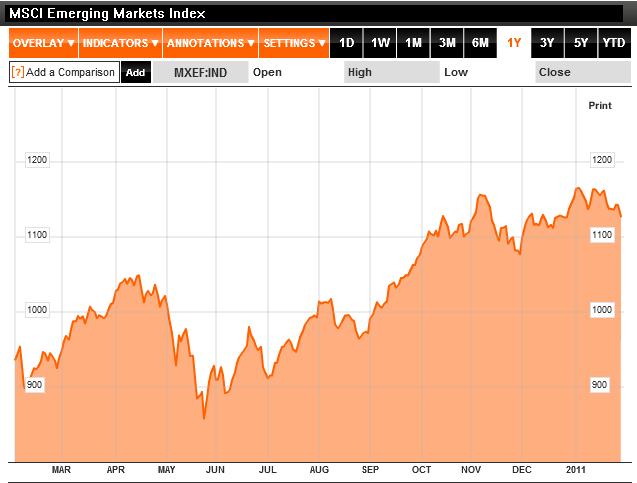Forex Crunch EUR/USD Jan. 31- Bouncing Off Low Support |
- EUR/USD Jan. 31- Bouncing Off Low Support
- Creative Default plan for Greece
- GBP/USD Outlook – Jan. 31 – Feb 4
- NZD/USD Outlook –Jan 31-Feb 4
- Forex Daily Outlook – January 31 2011
- AUD/USD Jan.31–Aussie Closes Week Slightly Higher & Steady
| EUR/USD Jan. 31- Bouncing Off Low Support Posted: 31 Jan 2011 12:42 AM PST EUR/USD starts the week lower, and is struggling to hold on to lower support, as the uprising in Egypt continues. Will stronger inflation boost the Euro ? Here's a quick update on technicals, fundamentals and community trends. EUR/USD Technicals Asian session: Started the week with a small Sunday gap lower. Current range – 1.3576 to 1.37. Further |
| Creative Default plan for Greece Posted: 30 Jan 2011 04:11 PM PST The creative method was probably found for a default of Greece. A so-called “Brady plan” – this plan means an offer for a haircut to current bond holders – they’ll get the option for an “exit” on their bonds, with around 75% of the potential, but above their current price. Reuters reports about the 25% |
| GBP/USD Outlook – Jan. 31 – Feb 4 Posted: 30 Jan 2011 03:04 PM PST After the shocker squeeze in the economy, the pound is up for a busy week, with fresh indicators of the economy. Here’s an outlook for the British events, and an updated technical analysis for GBP/USD. The pound was hit both by the squeeze in the economy and the Egyptian crisis, which threatens the global recovery |
| Posted: 30 Jan 2011 02:34 PM PST Labor Cost Index and Employment Data are the main events this week. Here’s an outlook for the events in New Zealand, and an updated technical analysis for MZD/USD. Prime Minister John Key considers selling $10 billion of key assets including state owned power companies and a stake in Air New Zealand in order to pay down |
| Forex Daily Outlook – January 31 2011 Posted: 30 Jan 2011 02:00 PM PST A very busy week ahead us Chicago PMI in the US, Nationwide HPI in the UK, GDP in Canada and much more. .Let’s see what awaits us today. In the US, Chicago Purchasing Managers’ Index (PMI), Survey of purchasing managers in Chicago to rate the relative level of business conditions, indicates expansion with 65.5 points. |
| AUD/USD Jan.31–Aussie Closes Week Slightly Higher & Steady Posted: 30 Jan 2011 12:24 PM PST The Aussie ended trading Friday by rising slightly against the Greenback for the week but failing to stay above parity. The pair traded in a tight range for most of the week. The Aussie was trading at 0.9941 up 0.23%, as of Friday’s close. Here's a quick update on technicals, fundamentals and community trends. AUD/USD |
| You are subscribed to email updates from Forex Crunch To stop receiving these emails, you may unsubscribe now. | Email delivery powered by Google |
| Google Inc., 20 West Kinzie, Chicago IL USA 60610 | |


